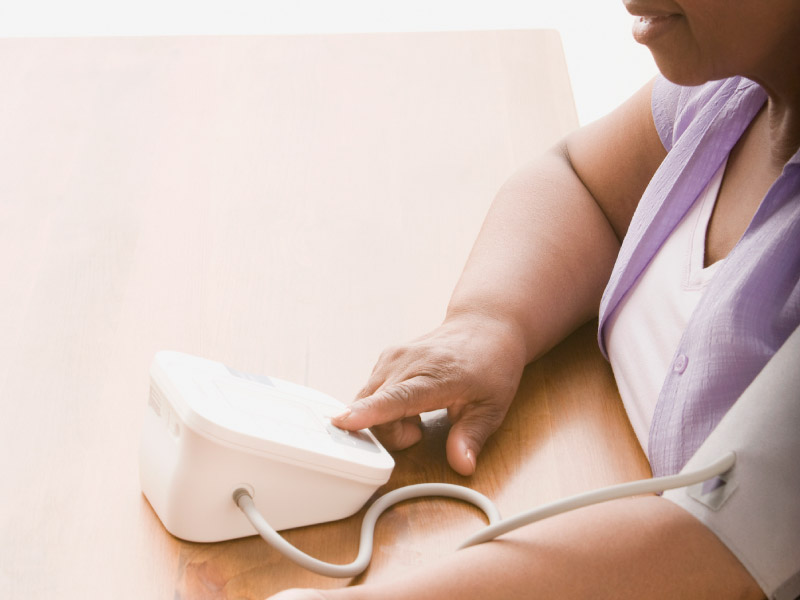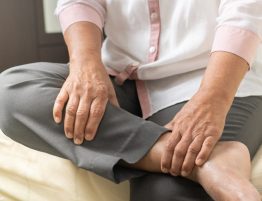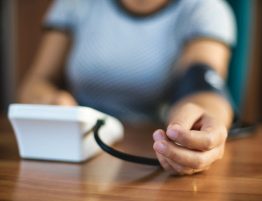
Black women with high blood pressure may benefit from classes where they learn and practice skills to manage the condition, a small study finds.
In the U.S., nearly 58% of Black women have high blood pressure compared to about 41% of white and Hispanic women, according to American Heart Association statistics. For Black women, death rates from high blood pressure-related causes are nearly double that of white women and more than twice the rate for Hispanic women.
Looking for innovative ways to help change those statistics, researchers enrolled 90 Black women who, on average, were 54 years old and had been dealing with high blood pressure for more than a decade. All participants were offered a six-week program that taught strategies such as making an action plan, proper use of medications, healthy eating, weight management and ways to increase physical activity.
On top of that, half the participants also received six months of health coaching and nine months of self-monitoring with a home blood pressure device, weight scale, wearable physical activity tracker, food diary and medication adherence tracker, with results viewed in real time on their smartphone. The other half of participants received six months of self-monitoring with equipment and no coaching.
Dr. Willie M. Abel, the study’s lead researcher, said it was encouraging to see that 83 of the 90 women completed the six-week program.
“Women in the study who adhered to their action plan and self-care management had remarkable results,” she said. “As an example, one participant lost 50 pounds and decreased her blood pressure to less than 120/80 (normal) during the study, while some others had similar results.”
After nine months of follow-up, 69 women completed the study. More than half of them had lowered their blood pressure to less than 130/80 mmHg, the threshold for high blood pressure. No major differences in blood pressure readings were seen in the group receiving the additional technology-enhanced coaching intervention.
“I have seen a lot of dire consequences for Black people with hypertension, such as stroke, kidney disease and heart attacks,” said Abel, an associate professor at the University of North Carolina at Charlotte School of Nursing. “This program helps to increase motivation among individuals and also helps them become actively engaged and more successful in maintaining their health.”
The findings, reported this week at the AHA’s virtual Hypertension Scientific Sessions, are considered preliminary until published in a peer-reviewed journal.
Abel said she would like to conduct future research on self-care management programs in churches and other community settings. There is still a glaring need to address unidentified obstacles.
“Black women are different from women of other racial/ethnic groups,” Abel said. “We know there are a lot of historical and socioeconomic factors that influence stress frequency, intensity and duration that differs from other women and contributes to hypertension and its adverse effects. We are just beginning to study the root of the problem and interventions to effect change.”
She pointed out that many Black Americans distrust the medical community because of a track record of mistreatment, most notably in the Tuskegee syphilis study, and unequal treatment, revealed through racial disparities in health care. Many Black men and women will not visit doctors regularly, and even if they do, they may not take medications as prescribed, she said.
“I call it ‘playing with the medication.’ They may take their antihypertensive medication periodically, but not every day, which can cause dire effects, such as rebound hypertension and the increased risk of stroke.”
Dr. Kim A. Williams Sr. said treating hypertension is slightly different for Black people, from the medications to the best place to measure blood pressure.
For example, many Black people live in high-stress environments, and their reading might be abnormally low in the relative calm of a doctor’s office, said Williams, chief of the Division of Cardiology at Rush Medical College in Chicago. So, measurements should be taken with an at-home monitor, he said.
Williams, who was not involved in the new study, said the most important things Black adults can do are maintain a healthy weight, exercise regularly and eat a nutritious diet.
“That’s not a popular message because people like eating what they eat,” he said. But if you change your diet from one “high in sodium and saturated fat to a plant-based diet, your blood pressure will fall so much that (your doctor might say) you will need less medications, and may not need medications at all.”
If you have questions or comments about this story, please email editor@heart.org.






